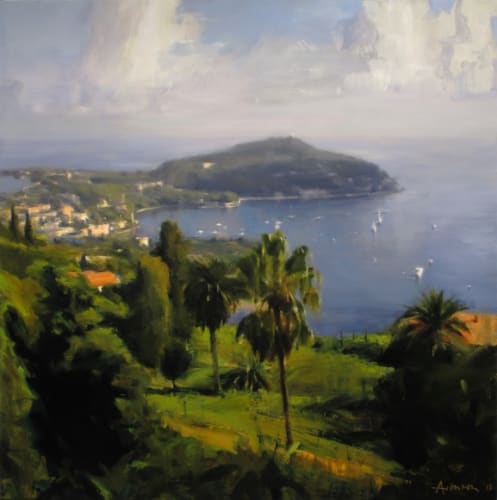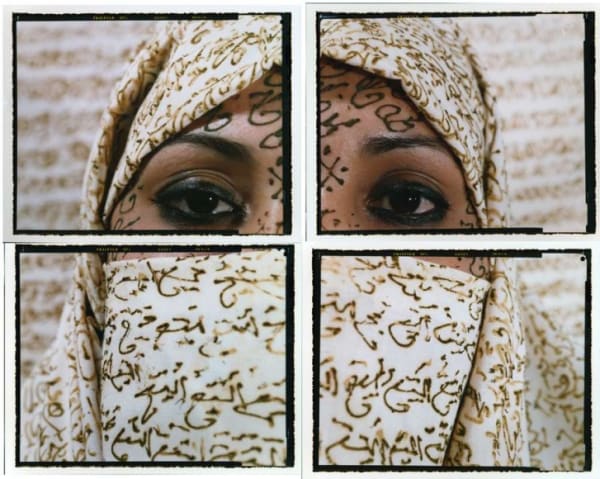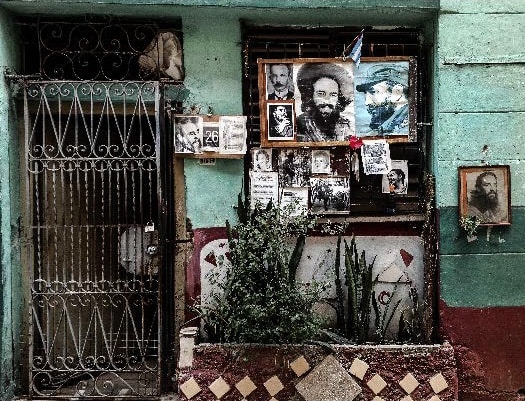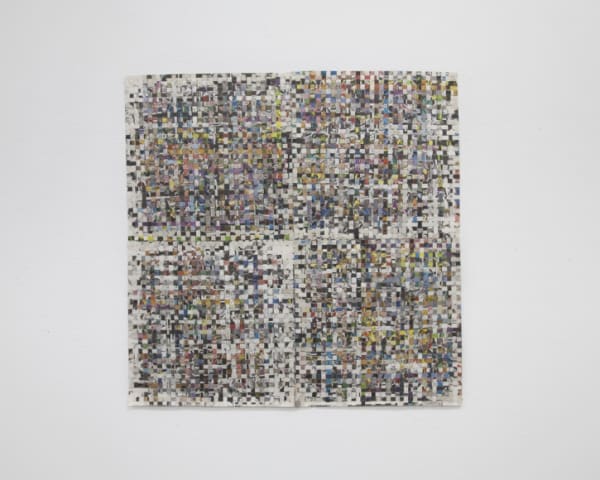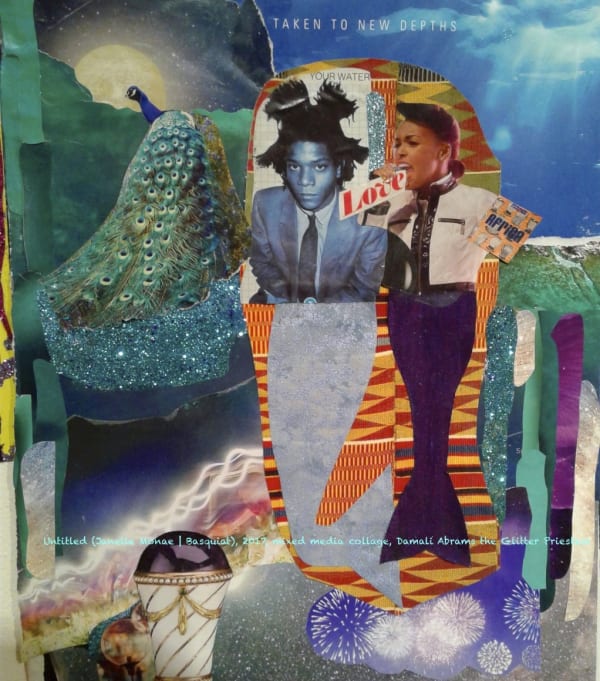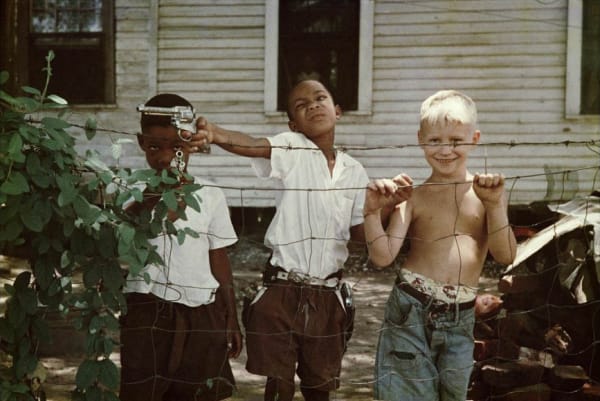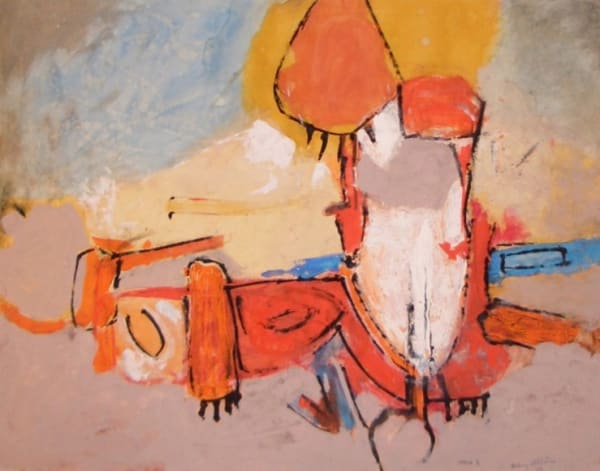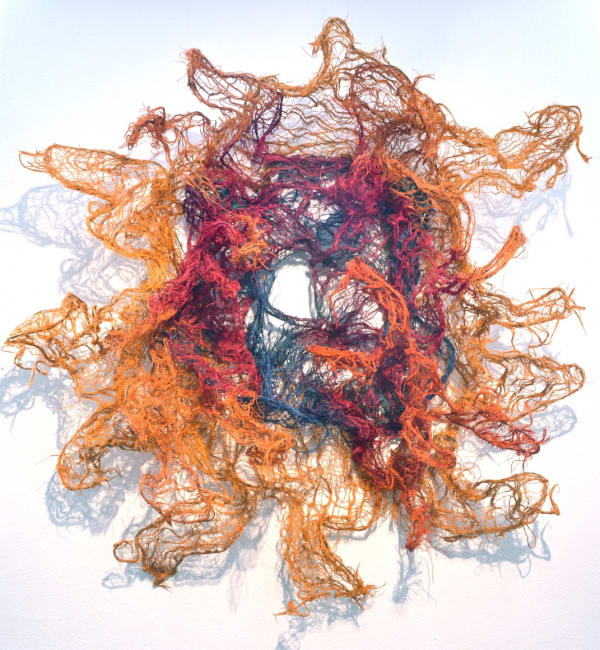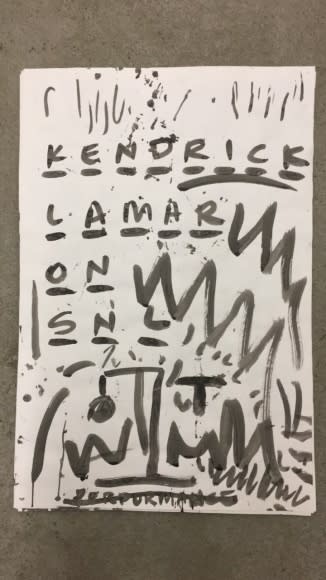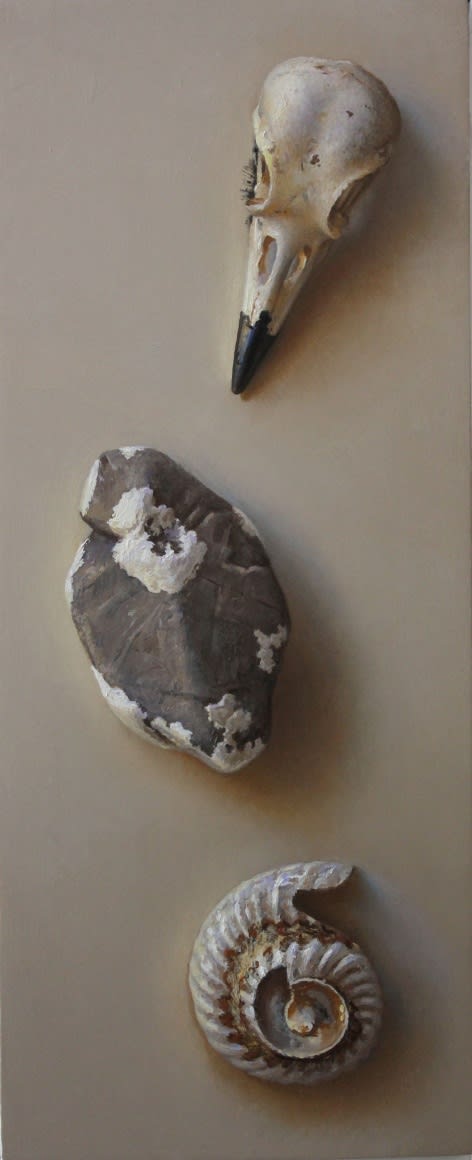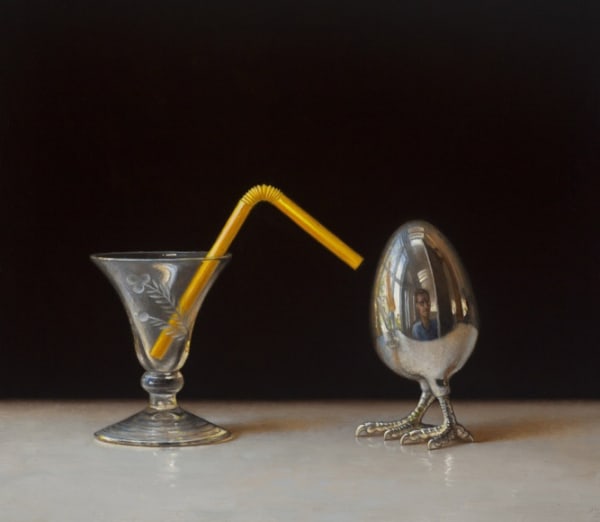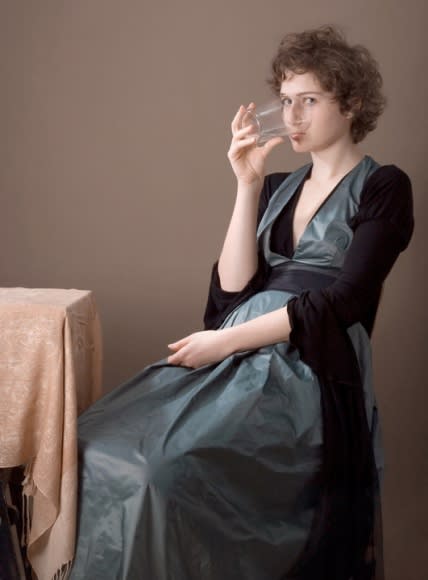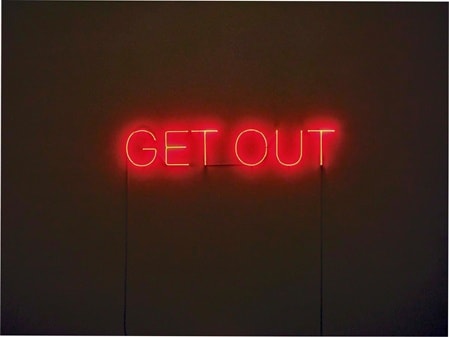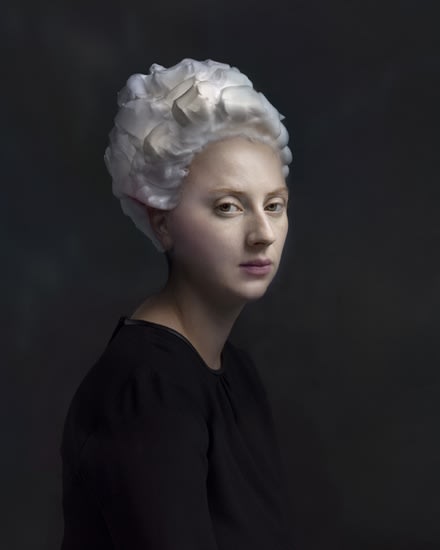Summertime
Jenkins Johnson Gallery, San Francisco is pleased to present Summertime, a group exhibition featuring socially informed works by artists working in a variety of disciplines including painting, photography, sculpture, film, neon installation, and mixed media. Presenting are Mohau Modisakeng, Gordon Parks, Lalla Essaydi, Lissette Solórzano, Damali Abrams, Ben Aronson, Hendrik Kerstens, Scott Fraser, Johnathan Payne, Aubrey Williams, Tim Etchells, Sam Vernon, and Nnenna Okore. Summertime opens July 27 and continues through September 23, 2017.
Jenkins Johnson Gallery, San Francisco is pleased to present Summertime, a group exhibition featuring socially informed works by artists working in a variety of disciplines including painting, photography, sculpture, film, neon installation, and mixed media. Presenting are Mohau Modisakeng, Gordon Parks, Lalla Essaydi, Lissette Solórzano, Damali Abrams, Ben Aronson, Hendrik Kerstens, Scott Fraser, Johnathan Payne, Aubrey Williams, Tim Etchells, Sam Vernon, and Nnenna Okore. Summertime opens July 27 and continues through September 23, 2017.
Mohau Modisakeng, representing South Africa at the 57th Venice Biennale, creates video installations that navigate the nuances of locating the intersection of identity and body under the domination of global capital. Summertime features Modisakeng’s film To Move Mountains, recently presented at Art Basel 2017, elaborating on the socio-economic struggles of working class people through symbolic confrontation, replacing war with art. The film references the 2012 Marikana Massacre, initiated by the South African police against unionized coal miners striking for a wage increase. With a speculated total of 47 workers killed, the massacre is the most lethal use of state violence by South African police against civilians since 1960. The incident garnered international attention when investigators revealed that the majority of the deceased were shot in the back. In the film, Modisakeng combines stark tones of black and white, representing coal and industry – worker and oppressor – suffocating in a smoky atmosphere, giving the film the appropriate gravitas for its foundation. Modisakeng’s works reflect a desire for the unification of the peoples of post-colonial South Africa. The artist participated in the 56th Venice Biennale, and in 2016, was awarded the Standard Bank Young Artist Award, the foremost art award in Africa.
The photo essays of Gordon Parks are influencing the next generation of filmmakers as demonstrated by Kendrick Lamar’s reference to the photographer’s work in his latest music video, “ELEMENT”. Summertime includes three of those works: Untitled, Alabama, 1956, Boy With June Bug, 1963, and Ethel Sharrieff, Chicago, Illinois, 1963. In one of the video’s scenes, several women wearing white robes are lined up in a triangle formation echoing Gordon Parks’ portrait of Ethel Sharrieff, daughter of the Nation of Islam Leader, Elijah Muhammad. In this way Lamar exposes Gordon Parks to a new generation while commenting on the long history of struggle endured by Muslims in the United States. Drawing a parallel with The Civil Rights Movement of the 1950s and 1960s, Parks’ works in Summertime explore the socio-economic and political disparities of people internationally on issues of racial equality, freedom of religion, open immigration, women’s rights, and LGBTQIA+ equality. Coinciding with Fotografiemuseum’s (FOAM) I Am You. Selected Works 1942-1978 in Amsterdam, Netherlands, the dialogue is continued in San Francisco. Parks has an upcoming exhibition at the Berkeley Art Museum and Pacific Film Archive (BAMPFA) opening September 27, titled Gordon Parks: The Making of an Argument, offering a comprehensive investigation into the photographer’s first Life magazine photo-essay, “Harlem Gang Leader” (1948).
Moroccan-born, New York-based photographer Lalla Essaydi explores issues surrounding the role of women in Arab culture and their representation in the western European artistic tradition. Her large-scale photographs are based on nineteenth-century Orientalist paintings but work to subvert those stereotyped and sexualized representations. Essaydi’s photographs depict the contemporary “culture of Isalmic feminism.” Essaydi has shown extensively worldwide, and her work is currently being exhibited in Revival at the National Museum of Women in the Arts in Washington, D.C., and in the traveling exhibition, I AM, at St. Martin in the Fields on Trafalgar Square in London.
Ben Aronson is exhibiting two new paintings, Lake Shore, Chicago, and Chicago River, reflecting the artist’s vivacious interpretation of urban landscapes. Aronson locates the geometric forms of large city structures amidst the interplay of cadmium yellows, cobalt blues, and vibrating earth tones, reminiscent of his work, Sun and Clouds, Cap Ferrat, in Southern France. Ben Aronson is a member of the highly acclaimed National Academy with work included in the permanent collections of many major museums across the world. Aronson will be exhibiting later this year at The University of New Hampshire Museum of Art.
Today's images of refugee migration are mirrored in Lissette Solórzano's portrayal of Cuban movement within their country after the U.S. isolation of Cuba and during the Special Period (the 1990's Soviet Union departure from Cuba). Solórzano focuses her camera in on everyday life, operating so often in the space between the said and unsaid while relating her work back to the sea. Solórzano will be exhibiting in the upcoming Florence Biennale October 6 – 15, 2017. She has shown widely throughout South and Central America, as well as the United States and her work has been featured in Europe as well, and she regularly participates in the Havana Biennial.
Damali Abrams who recently finished a Center for Arts, Design, and Social Research residency in Italy will show mixed media collages on paper. Abrams’ work is a fusion of mermaid mythology, pop-culture, and self-help in her playful collages analyzing black desire and aspirations in the face of socio-economic realities.
Self-taught Dutch photographer Hendrik Kerstens, drawing on the long history of the Old Masters, references Dutch painting and the consistency of north lighting to merge contemporary objects with past motifs. Kerstens uses a humorous aesthetic language to draw parallels between the past and present, equipping the viewer with the tools to examine the ways in which their modern reality might be considered antiquated in the future. Concurrent with Summertime, Kerstens’ work is on display at the Musée des Beaux-Arts de Caen, France, and Akron Art Museum, Ohio through September 10.
-

Gordon Parks
Ethel Sharrieff, Chicago, Illinois, 1963
gelatin silver print
14 x 11 inches
Courtesy of the Gordon Parks Foundation ©The Gordon Parks Foundation
-

Gordon Parks
Muhammad Ali in Training, Miami, Florida, 1966
gelatin silver print
12 7/8 x 8 7/8 inches
Courtesy of The Gordon Parks Foundation ©The Gordon Parks Foundation
-

Mohau Modisakeng
Endabeni 1, 2015
ink-jet print on epson hot press natural
59 x 78 3/4 inches
edition of 6
-

Lalla Essaydi
Converging Territories #24, 2004
4 chromogenic prints mounted to aluminum with UV protective laminate
20 x 24 inches
edition of 5
-

Lissette Solórzano
Iconos Revolución, 2016
baryta archival pigment print
60 x 45 inches
-

Scott Fraser
Electric Dream, 2014
oil on board
47 1/4 x 13 1/4 inches
-

Johnathan Payne
Untitled (Spiraling #1), 2016
woven shredded comic books and adhesive
21 x 21 inches
-

Damali Abrams
Untitled (Janelle Monae Basquiat), 2016
mixed media collage on paper
12 x 10 1/8 inches
-

Gordon Parks
Untitled, Alabama, 1956
archival pigment print
Courtesy of The Gordon Parks Foundation ©The Gordon Parks Foundation
-

Lissette Solórzano
Maquina de coser roja, 2007-2009
baryta archival pigment print
31 1/2 x 23 6/8 inches
edition of 10
-

Lalla Essaydi
Les Femmes du Maroc, Fumee d'Ambre Gris, 2008
chromogenic print mounted to aluminum and protected with UV laminate
88 x 71 inches
edition of 5
-

Aubrey Williams
Maya X, 1972
gouache on paper
20 x 25 inches
-

Aubrey Williams
Now and Coming Time I, 1988
oil on canvas
48 x 70 1/2 inches
-

Nnenna Okore
Through Thick and Thin, 2017
newspapers, burlap, dye and wire
40 x 44 inches
-

Nnenna Okore
Ihe Di Ife (Living Thing), 2016
burlap, dye and wire
81 x 85 x 12 inches
-

Nnenna Okore
What if?, 2017
burlap, yarn, dye and wire
80 x 88 x 10 inches
-

Sam Vernon
Hangman Series VIII, 2016
ink on paper
36 x 24 inches
-

Sam Vernon
Hangman Series III, 2016
ink on paper
36 x 24 inches
-

Scott Fraser
15 Chocolates, 2015
oil on board
13 1/2 x 6 3/4 inches
-

Scott Fraser
Skull, Rock, Shell, 2016
oil on board
4 1/2 x 11 inches
-

Scott Fraser
Happy Hour, 2015
oil on board
9 3/4 x 8 3/4 inches
-

Timotheus Tomicek
Glass Girl, 2011
video installation
54 3/8 x 41 3/8 inches
-

Timotheus Tomicek
One More, 2010
video installation
27 1/2 x 23 5/8 inches
edition of 5
-

Tim Etchells
G.O., 2010
neon sign
10 1/2 x 63 inches
edition of 3
-

Hendrik Kerstens
Cream, 2015
raw / color negative
40 x 30 inches
edition of 10
-

Ben Aronson
Sun and Clouds, Cap Ferrat, 2016
oil on panel
60 x 60 inches

